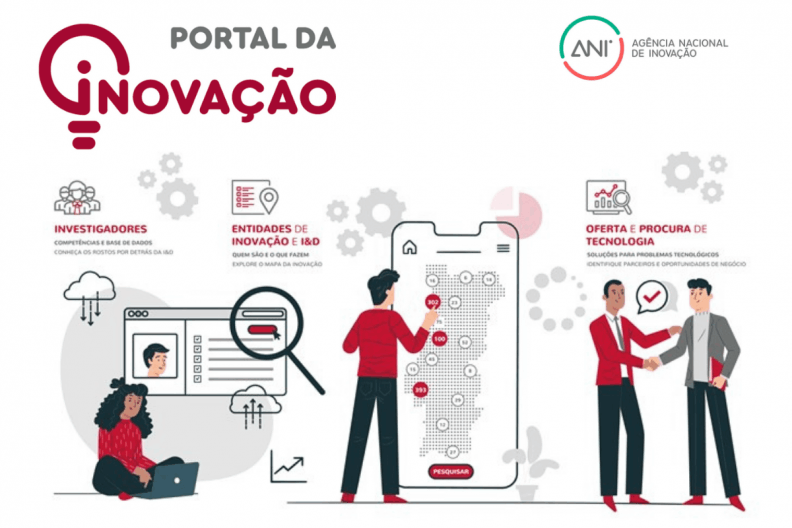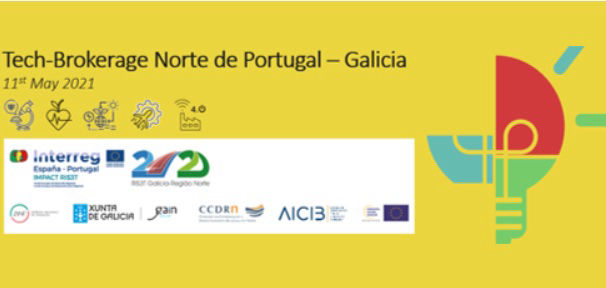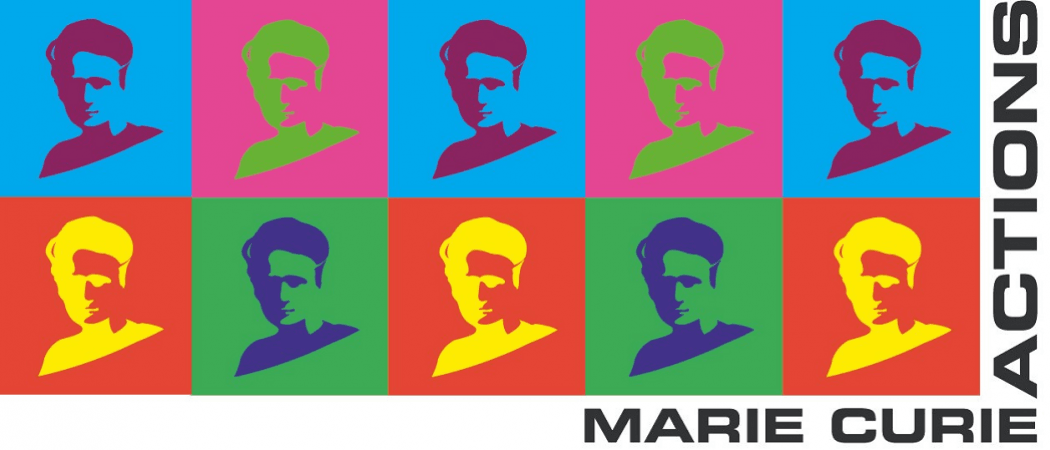
Caros colegas,
Nesta edição damos particular destaque a iniciativas de inovação e desenvolvimento tecnológico em que o GGI esteve recentemente envolvido. Como é reconhecido por todos, os concursos para financiamento de investigação científica promovidos por agências e outras instituições, públicas ou privadas, estão cada vez mais competitivos. Para conseguirmos ser bem-sucedidos precisamos atualmente de ir muito mais além nas nossas propostas do que fomos num passado não muito distante: i) precisamos de ter ideias disruptivas e sugerir estudos na fronteira do conhecimento atual; ii) precisamos de conhecer bem os objetivos dos financiadores e ir ao encontro das suas melhores expectativas; iii) precisamos de juntar equipas multidisciplinares com experiência em valências complementares para responder de forma mais abrangente aos problemas; e iv) precisamos ainda de estar bem alinhados com as prioridades e desafios da sociedade e com os interesses das empresas e do mercado em cada momento.
A investigação que fazemos na FMUC, seja ela fundamental, translacional ou clínica, tem um valor intrínseco imaterial enquanto geradora de novo conhecimento que poderá vir a ser importante para melhorar a qualidade de vida dos cidadãos em geral e a saúde dos doentes em particular. Sendo inquestionável que este é o principal objetivo da investigação desenvolvida numa faculdade de medicina, não deixa de ser verdade que aquilo que fazemos tem também um valor material, esteja ele já perfeitamente consolidado ou em estado ainda embrionário. É importante estimar esse valor e potenciá-lo, conhecendo as etapas a percorrer até conseguir levar aquilo que estamos a desenvolver até aos cidadãos – o objetivo primordial – mas também até aos potenciais interessados em termos comerciais ou empresariais.
A investigação científica, a inovação e o desenvolvimento tecnológico têm de caminhar de braço dado para responder de forma mais eficiente aos desafios e às necessidades. Para que consigamos verter nas nossas propostas estas três perspetivas diferentes, ainda que complementares, temos de estar familiarizados com as linguagens próprias de cada setor e preparados para entrar em terrenos que não estamos habituados a pisar. Por todas estas razões, o GGI tem estado empenhado na aproximação dos colaboradores da FMUC a estas vertentes de inovação e desenvolvimento tecnológico, promovendo e participando em diversas iniciativas, como as que destacamos nas notícias Breves deste número.
Votos de um mês com ideias inovadoras capazes de gerar valor!
Be FMUC!
Flávio Reis
Coordenador do GGI
Breves
iCBR no Portal da Inovação
O Portal da Inovação é uma plataforma criada pela Agência Nacional de Inovação (ANI) para reunir informação relevante para o Sistema Nacional de Inovação. Este portal representa uma ferramenta estratégica para a identificação de possíveis parceiros para a formação de consórcios ou de negócio, bem como para identificar investigadores e centro de I&D com competências e tecnologias específicas. O GGI promoveu a colocação de informação relativa ao iCBR no Portal da Inovação, o que permitirá aumentar a sua visibilidade.

No passado dia 6 de maio, a UC Business, a convite do GGI, conduziu um seminário sobre vigilância tecnológica. Começou por apresentar as valências e serviços desta estrutura da UC, focando em conceitos e cuidados que os investigadores devem ter em conta para proteger o resultado da sua investigação científica. De modo a criar um espírito de perceção e consciência, foi explicado o que é a vigilância tecnológica, como a fazer convenientemente e como valorizar os resultados obtidos, de modo a ter um impacto mais significativo na sociedade.
Participação no Tech-Brokerage
Norte de Portugal – Galicia
O Tech-Brokerage Norte de Portugal – Galicia é uma iniciativa organizada pela Agência Nacional de Inovação (ANI) com o apoio da Enterprise Europe Network (EEN) e com a colaboração da Comissão de Coordenação e Desenvolvimento Regional do Norte (CCDR-N), da Agência Galega de Inovação (GAIN) do Centro para el Desarollo Tecnológico Industrial (CDTI) e da Agência de Investigação Clínica e Inovação Biomédica (AICIB), que incluiu sessões temáticas sobre os domínios do Horizonte Europa e reuniões individuais para troca de competências e ideias de modo a fomentar o desenvolvimento futuro de consórcios de I&D e Inovação. O GGI aproveitou este evento, muito focado na Estratégia de Especialização Inteligente Transfronteiriça Norte de Portugal – Galiza, para identificar e reunir com potenciais parceiros para os projetos envolvendo docentes e investigadores da FMUC.

Participação na formação sobre
o Programa Marie-Curie Fellowships
O GGI está a frequentar a formação sobre o Programa Marie-Curie Fellowships para Gestores de Ciência. Esta formação, no âmbito das “Formações iiiUC - Apoio a Gestores de Ciência”, está a cargo da equipa de Gestores das Áreas Estratégicas da UC, sediado no Instituto de Investigação Interdisciplinar da UC (iiiUC), com a participação da Divisão de Apoio e Promoção da Investigação (DAPI). O objetivo é dotar os gestores com as ferramentas necessárias para prestarem apoio à submissão deste tipo de candidaturas. Esta formação conta com 3 sessões distintas para abordar os tópicos “Atração de candidaturas”, “Preparação de candidaturas de sucesso” e “Revisão de candidaturas”.

OPORTUNIDADES DE FINANCIAMENTO FUNDING OPPORTUNITIES
Applications are now open for the 2nd Edition of Funding programme "Seed Projects for Interdisciplinary Research". With total funding of 100,000€, five interdisciplinary research will be funded up to 20,000€. The funding aims to support exploratory projects to obtain relevant knowledge for the development of cutting-edge lines of research that intersect different scientific domains of the University of Coimbra and contribute to the Sustainable Development Goals (SDGs) of the United Nations Agenda 2030.
The research teams must be led by professors and/or researchers from the R&D Units of the UC group with doctorates after January 1st 2011. The team's composition must include integrated members from at least two R & R&D Units from different scientific fields and respect the principle of diversity.
iiiUC will provide support regarding applications, namely:
- Information session for proposal preparation to be held on May 21st, at 16h00.
- Networking support to build interdisciplinary teams;
- Coaching for evaluation process: how to excel in the final interview;
- Support for the communication plan oriented to non-academic audiences.
Further information available at:
https://www.uc.pt/iii/Apoios/projetos_semente
Fundação Amélia de Mello, intending to contribute to the research and progress of Health Sciences, instituted the D. Manuel de Mello Scholarship, in the amount of 50,000€ (annually), aimed at rewarding young medical doctors who develop clinical research projects, within the scope of the Research and Development Units of the Portuguese Medical Schools. Please note that applications must be sent to the Scientific Council of the Faculty of Medicine of the University of Coimbra, in digital format.
Further information available at:
https://www.fundacaoameliademello.org.pt/ivestigacao-clinica-inovacao/
The co-funded call of TRANSCAN-3 (JTC 2021) will focus on "Next generation cancer immunotherapy: targeting the tumour microenvironment”. In the context of translational research, this topic at the intersection of laboratory and clinical research in immuno-oncology will comprise two general aims which concur to the possible clinical applications. Proposals will have to cover at least one of the six (6) specific sub-aims. Approaches should be directed to draw up a multidimensional TME map paving the road for new efficacious immunotherapy strategies. Projects should be built from a solid and established hypothesis and should be relevant with regards to the possible improvements in clinical practice.
Aim 1: Identification and validation of TME subclasses and their contribution to the resistance mechanisms: Translational research using tumour samples collected from retrospective and/or prospective cohorts of patients.
Aim 2: Targeting TME to improve efficacy of immunotherapy in human patients.
Only transnational projects will be funded. Each research consortium must involve a minimum of three (3) and a maximum of six (6) eligible partners from at least three (3) different countries participating in the call. In addition, a research consortium must not involve more than two (2) research groups from one country.
Further information available at:
http://transcan.eu/opencall.html
The BIAL Award in Biomedicine, with the amount of 300,000€, seeks to recognize a work published in the broad biomedical field within the last ten years, the results of which are considered of exceptional quality and scientific relevance. Only works nominated by the voting members of the Jury, the members of the Scientific Board of the BIAL Foundation, previous BIAL award winners or Scientific Societies may be considered candidates for the BIAL Award in Biomedicine. The Jury may also invite other scientific institutions to submit nominations. Self-nominations are not allowed.
Further information available at:
https://www.bial.com/com/bial-foundation/awards/bial-award-in-biomedicine/
The IOIBD Operating Grants provide funding for one year to support research projects that aim to advance knowledge, treatment or management of IBD. To be eligible, the project must involve an active or senior IOIBD member in the capacity of PI or co-investigator.
The maximum grant is 200,000€ for up to one year. Preferably two grant will be awarded for clinical and two for basic science projects. Preference will be given to grants less than or equal to 50,000€. Applications may be submitted to IOIBD using the Grant Application form, which is available by request from the IOIBD Scientific Secretariat: ioibd@mkproducties.nl
Further information available at:
https://ioibd.org/grants/
Seeking to support clinical trials testing novel and unique strategies in the treatment of patients diagnosed with pancreatic ductal adenocarcinomas (PDAC) and/or biliary tract cancer (BTC). The proposal needs to have the potential to have a high impact (e.g. improve cure rate or survival) on the treatment of these cancers.
Innovative approaches extrapolated from laboratory work in relevant cancer models or extrapolated from other cancer types but deemed applicable in PDAC and/or BTC. Both early phase trials as later phase trials with an out-of-the-box concept are permitted. In principal, generating proof-of concept data or exploring novel promising interventions not investigated yet or building on preliminary pilot data are welcomed. Proposals might not be deemed innovative if the intervention is being or has been investigated by other groups or if there is only a small incremental gain in knowledge and/or outcome.
The proposal must be realistic and deemed feasible to execute. Applicants should contact apply@anticancerfund.org for any questions related to the RFA or to check eligibility of their proposal in case of doubt.
Further information available at:
https://www.anticancerfund.org/en/request-application
Within the framework of the PRF Research Grants programme, funding is available annually for research on Hutchinson-Gilford progeria syndrome (Progeria or HGPS). The research focus is highly translational. Topics must fall within any of the following research priorities:
Projects that are likely to lead to clinical treatment trials within five years. This includes the discovery and/or testing of candidate treatment compounds in cell-based or animal models of HGPS. Only proposals that test compounds in a progerin-producing animal or cell model will normally be considered. Analyses in non progerin-producing models are acceptable, but only as a comparison to progerin-producing models and with strong justification.
Development of gene- and cell-based therapies to treat Progeria.
Assessment of natural history of disease that may be important to developing outcome measures in treatment trials (preclinical or clinical). Awards are typically in the range of $75,000 per year for a duration of one or two years.
Further information available at:
https://www.progeriaresearch.org/research-funding-opportunities/
European Foundation for the Study of Diabetes (EFSD), Juvenile Diabetes Research Foundation (JDRF) and Lilly co-fund the European Programme in Type 1 Diabetes Research to encourage new projects aimed at advancing current knowledge in type-1 diabetes in Europe through basic or clinical research.
The particular goals of the Programme are to:
- Promote the highest quality of basic and clinical biomedical research in Europe, and its associated countries, applicable to type-1 diabetes;Expedite the practical application of scientific advances in the understanding of the aetiology, pathogenesis, treatment and prevention of type-1 diabetes and its complications;
- Encourage clinical translational research bridging the bench and the bedside;
- Increase awareness of type-1 diabetes research throughout Europe.
This year, the EFSD/JDRF/Lilly European Programme in Type 1 Diabetes Research will accept applications within any area of basic or clinical research related to type 1 diabetes including treatment and monitoring strategies.
Grants will normally amount to €100,000. The award may be for one year or longer if the needs of the project are justified in the application.
Further information available at:
http://www.europeandiabetesfoundation.org/workshops/51-efsdjdrflilly-european-programme-type-1-diabetes-research.html
The CHARGE Syndrome Foundation, Inc. announces the availability of scientific research grants of up to $50,000 each. The purpose of these grants is to promote: a) new biomedical research into the etiology, genetic and molecular mechanisms and treatment of CHARGE syndrome or b) new research into the medical diagnosis and treatment of CHARGE syndrome.
Both established and new investigators are encouraged to apply. Proposals are for funding from October 1, 2021 through September 30, 2022 and may be in any area of basic, translational or epidemiological research. Preference is given to investigators who are new to CHARGE research and/or to new projects with clear potential to lead to future funding from other agencies. For more information contact: info@chargesyndrome.org
Further information available at:
https://www.chargesyndrome.org/research/foundation-supported-research/
Within the framework of the VHLA Research Grant Program, funding is available for topics relevant to von Hippel-Lindau disease. Projects should further the understanding of VHL disease and may address VHL cell and molecular biology, the development and/or application of VHL-relevant animal models, or the diagnosis and treatment of VHL patients.
The programme consists of two funding mechanisms: research project grants (duration of three years) and pilot grants (duration of one year). Research project grants have a value of up to $50,000 per year for three years. The maximum pilot grant is $25,000. Eligible applicants are researchers worldwide. The principal investigator should have faculty status or equivalent.
Further information available at:
https://www.vhl.org/researchers/research-grants/
The Foundation's IBD Ventures Programme aims to support the discovery or development of a specific product that has the potential to have a positive impact in the IBD field. Successful projects should be approximately 12 months in duration. Specific intermediate and final milestones must be identified at the start of the project.
Research projects thematic may include (but are not limited to):
- Therapeutics: small and/or large molecules, gene therapies, cell therapies and nutraceuticals;
- Devices and diagnostics: medical devices, imaging agents and laboratory tests;
- Healthcare technology: software, services and other technology-based products.
Applicants should demonstrate an up-to-date and clear understanding of how the proposed product would address a specific, unmet need in IBD. Substantiation of the unmet medical need (eg based on clinical research or input from patients and clinicians) is encouraged. Research proposals should also include preliminary evidence in support of the scientific validity and commercial potential of the proposed product. Validation studies and insights from patient data are encouraged. Applicants should prioritize activities considered to be the most critical for the discovery or development of the product.
Further information available at:
https://www.crohnscolitisfoundation.org/research/grants-fellowships/entrepreneurial-investing
The EFSD Anniversary Fund Programme joins in the celebration of the 100-Year Anniversary of the discovery of insulin with the aim at supporting the most talented investigators in the fields of diabetes research in Europe. Projects may be basic, translational and/or clinical research on diabetes or its comorbidities and complications. Research will be supported through the award of grants, each of up to Euro 200,000. The duration of each award may be one year or longer, depending upon the needs of the project and as justified in the application.
Further information available at:
http://www.europeandiabetesfoundation.org/workshops/120-efsd-anniversary-fund-programme.html
The Foundation's Genetics Grants seek to accelerate the rate of progress in genetics research by supporting novel approaches and contrarian research, particularly research that is undervalued by traditional funding sources. Projects can take the form of basic or translational research, or can be educational programmes to increase worldwide public awareness of how genetics-related research and its applications can advance human development at individual and society levels.
Further information available at:
https://www.templeton.org/grants/apply-for-grant
The Consolidate Call supports mature innovative projects (TRL4 or higher) with solid IP and commercialisation strategies to achieve investment-ready stages and bring them closer to the market. Projects must be related to the areas of Life, Medical and Health Sciences. Projects must be mature in their Technology Readiness Level (at least TRL4), having performed significant valorisation activities and a defined Commercialisation Strategy. Projects may have proven experience in other Acceleration Programmes. Financial support consists of a grant of up to €300,000 for 24 months.
Further information available at:
https://fundacionlacaixa.org/en/consolidate-call-programme-description?utm_source=newsletter&utm_medium=email&utm_campaign=4799_CXI_Email&utm_content=EN&utm_term=Ciencias-e-investigacion&crm_i=CIEINV_1_GEN
The aim of the requests for proposals is to support projects that focus on improving the care of patients by addressing knowledge gaps in following areas:
Atrial Fibrillation (AF):
- Updates on anticoagulation guidelines/guidance;
- Anticoagulation in special populations (i.e. elderly/fragile, obese, renal, comorbidities and/or polypharmacy);
- Anticoagulation and cardiac peripheral procedures (ie bioprosthetic valves, ablation, cardioversion);
- Increasing and scale-up AF diagnosis and its impact in morbidity and mortality.
Venous Thromboembolism (VTE):
- VTE and length of anticoagulation treatment;
- VTE bleeding and thrombosis risk assessment through patient characteristic (age, comorbidities, etc);
- New data on cancer associated (Ca-VTE) thrombosis management;
- Updates on anticoagulation guidelines/guidance.
Eligible applicants are medical, nursing, allied health, and/or pharmacy professional schools, healthcare institutions (both large and small), professional associations and medical societies, medical education companies, and other entities with a mission related to healthcare professional education and/or healthcare improvement. For projects offering continuing education credit, the requesting organisation must be accredited.
The typical grant maximum under this request for proposals will be up to $150,000.
Further information available at:
https://cdn.pfizer.com/pfizercom/2021-04/Education%20AFib%20VTE_Final.pdf?VersionId=b0s3ZwKwh5vPNJNSFo6leKTsVqe0fWj8